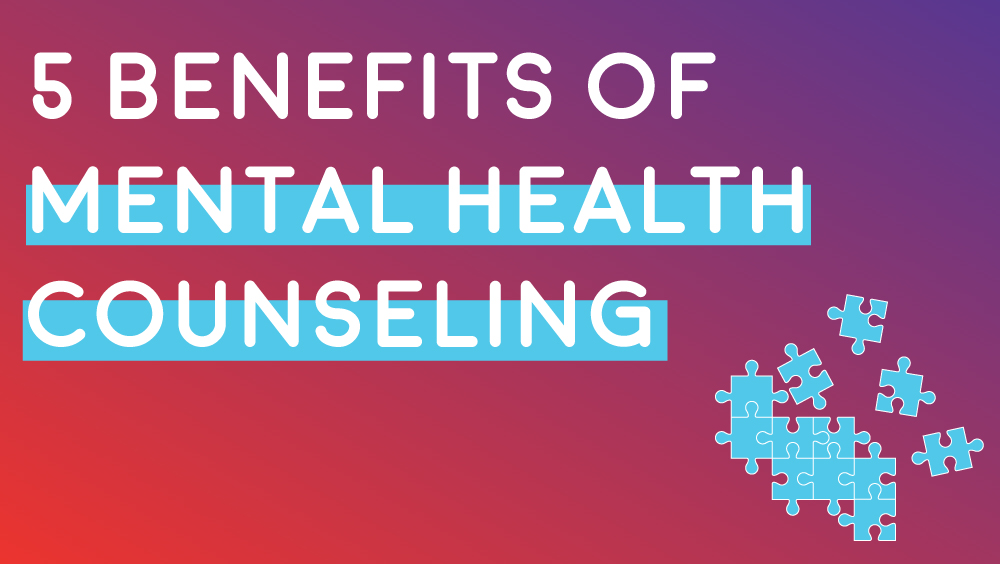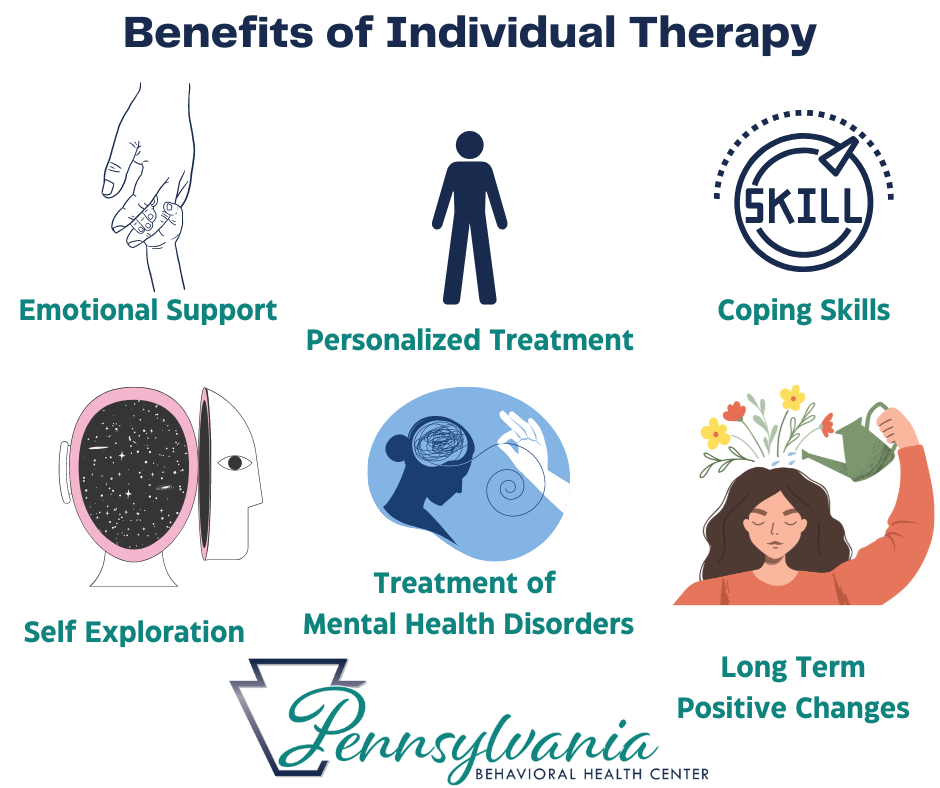Getting My Mental Health Counseling To Work
Getting My Mental Health Counseling To Work
Blog Article
Unknown Facts About Mental Health Counseling
Table of ContentsMental Health Counseling for DummiesAbout Mental Health CounselingSome Known Questions About Mental Health Counseling.A Biased View of Mental Health CounselingHow Mental Health Counseling can Save You Time, Stress, and Money.
With therapy, you can acquire insight into your own patterns of behavior and communication, which can lead to more fulfilling and satisfying relationships with buddies, household, and charming partners. What we think, we show up. If you're eaten with unfavorable emotions and negative thoughts that are hindering your life, treatment can assist., or there are other negative means you act. Therapy can help you modify those habits that are having an unfavorable impact on your globe and connections.

The value of treatment surpasses your mental health. Getting treatment to attend to particular elements of your life can assist you be much more effective in various other areas, consisting of work. Some research study has even shown that there's a straight relationship in between seeking mental wellness aid and a decrease in missed out on work.

The Ultimate Guide To Mental Health Counseling
There are also extra benefits of therapy than simply the ones we have actually discussed., or build relationships (romantic or those with household or buddies) in a healthy and balanced way.
For the function of the here and now study, viewed benefits and barriers to mental health and wellness help-seeking are being discovered. Previous study located that regarded obstacles have a considerable effect on college trainees' health behavior choices (Von Ah, Ebert, Ngamvitroj, Park & Kang, 2003). Regarded advantages and barriers to help-seeking were specifically chosen because of their influence on decision-making and eventually action (Glanz, Rimer, & Su, 2005).
The here and now research seeks to analyze whether preconception functions as a barrier to therapy among university student. Eisenberg et al. (2011) suggested that uncertainty regarding treatment efficiency is one more barrier to getting involved in treatment. Study searchings for exposed that university student backed a number of obstacles to getting involved in treatment. Mental Health Counseling. Amongst these were: (1) liking to handle mental health issue themselves, (2) not having adequate time to take part in treatment, (3) inquiries regarding whether mental wellness treatment is reliable in remediating problems, (4) an idea that tension is typical or the problem will improve without treatment, (5) lack of cash, and (6) stress over what others would assume if they learnt about therapy involvement.
(2006) reported comparable variables as obstacles to looking for treatment and also located that a mistrust of suppliers might impede students from seeking help. Personnel in school psychological wellness facilities might be perceived as unfriendly, and long wait times for services may be "off-putting" for trainees. Aspects promoting more positive mindsets Clicking Here are commonly at the opposite pole of those elements recognized as obstacles.
The Facts About Mental Health Counseling Uncovered
One in three (34.6%) reported living on campus and one in four (23.3%) reported living with parents. Nearly half of trainees were associated with campus organizations and 1 in 10 reported remaining in a society or sorority. Even more than one-third of students (38.1%) reported that they had a household participant or pal with an identified psychological health condition.

5 Simple Techniques For Mental Health Counseling
Univariate F-tests identified particular subscale products view it now that dramatically varied. Females were less most likely than males to perceive individuals that most likely to therapy as emotionally weak, individuals who go to counseling as crazy, to feel that individuals with mental illness should discover this handle problems on their own, that individuals who most likely to therapy as unable to fix issues, that people that go to counseling are careless, and to really feel that people that most likely to counseling are different from normal individuals in an adverse way.
In a similar way, research results exposed that females were significantly much less likely than men to hold stigma-related mindsets. This is regular with previous research which likewise found that males hold greater levels of viewed preconception than women (Chandra & Minkovitz, 2006). Based upon study findings, it appears that males might be much less likely than ladies to seek treatment as a result of low viewed obstacles as well as high stigma-related mindsets.
The Best Guide To Mental Health Counseling
Furthermore, college wellness professionals might supply educational programs targeting men with information on the benefits of psychological wellness therapy and the significance of seeking aid when required. All strategies should be assessed with future research to identify the effect on college trainees, specifically males. Unlike basic populace research studies which expose that ladies are more probable to look for psychological wellness solutions compared to men (Haunstein et al., 2006; Mackenzie, Gekoski, & Knox, 2006), the existing research located no considerable differences in the number of regarded obstacles to help-seeking behaviors based upon sex.
This searching for was unforeseen and can highlight that those that had received therapy had a much better idea of delay times and other "access" obstacles that might make it tough to begin therapy. Probably, participants who have actually received therapy view a lot more obstacles than participants who have actually not gotten therapy considering that seeking therapy services once again can involve anxiety of self-disclosing personal information to a new therapist.
Report this page